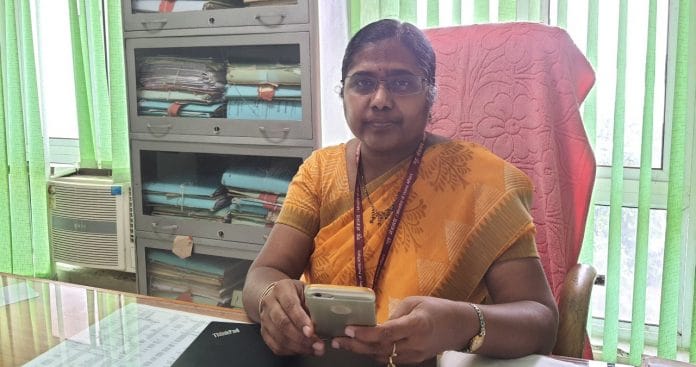New Delhi: An Indian woman has for the first time won a seat in a United Nations-linked technical body with a mandate to resolve disagreements between UN members over radio spectrum. Revathi Mannepalli, an official of the Department of Telecommunications, won the most votes in the Asia and Australasia region to become a member of the Radio Regulation Board (RRB) of the International Telecommunication Union (ITU).
The ITU is the UN agency looking at everything to do with information and communication technologies, including radio spectrum. With the world going digital at an exponential pace and countries vying to send more satellites into space, the value of this finite resource is no lesser than gold.
India last had a representative on the RRB from 1998 to 2014.
Revathi, who received the votes of 139 UN member countries of the 180 that voted, said she was “very happy” with the results declared on 29 September. “We have support from other countries. I am confident of my chances. It’s not just about the candidate’s professional experience, it’s also the country’s image that matters,” she had told ThePrint in August.
In the voting held in Romania, she was up against four other candidates from China, Saudi Arabia, Iraq, and Indonesia.
The RRB is divided into five regions, namely Region A (The Americas), Region B (Western Europe), Region C (Eastern Europe and Northern Asia), Region D (Africa), and Region E (Asia and Australasia).
Each region is allotted a specific number of seats and Region E, of which India is a part, has three seats. This is why Revathi had to bag enough votes to be counted among the top three candidates in Region E.
As an RRB member, she wants to promote more inclusivity — a compelling message that appeals to developing nations still pushing for recognition and influence in the coveted space race.
Also Read: Don’t auction satellite spectrum if you want good rural broadband, says chief of telco body IAFI
Why ITU, RRB are important
Simply put, the ITU allocates global radio spectrum and satellite orbits to countries while it is the task of the RRB to resolve disagreements over the allocation. Needless to say, these spats between countries are complicated and carry enough weight to influence geo-political equations.
For instance, at its 88th meeting in January, the RRB said it could not accede to Beijing’s request that the board recognise its use of frequency assigned to Chinese satellite networks.
The chairman of the board even noted that two Chinese satellites were used for “spectrum warehousing” without them being actually put to use. The term ‘spectrum warehousing’ means one is hoarding spectrum without using it and stopping others from using it.
China also happens to be ITU’s biggest financial contributor among “developing countries” — India contributes half of what China does.
It was also noted that RRB’s efforts to resolve harmful interference issues between China and the United Kingdom were bearing fruit, with China pledging to increase monitoring to check for interference that may result in the degradation of broadcasting services in the UK.
At the same meeting, the board turned down India’s request for more time to use frequency assigned to its INSAT-KA68E satellite network.
‘First engineer from her village’
With neatly parted hair, a conservatively-draped saree, and no make-up, Revathi — an Indian Engineering Service (IES) officer for 26 years — sits at her office at Sanchar Bhawan, the headquarters for India’s Department of Telecommunications (DoT).
As senior deputy wireless advisor in the DoT’s Wireless Planning and Coordination (WPC) wing, she draws up regulations for use of spectrum, apart from resolving signal interference issues among entities using it.
“Satellites and space have always fascinated me,” she had said in an interview with ThePrint in August.
Revathi’s penchant for space-related matters began when she was growing up in Kondapuram, a village in Andhra Pradesh about 200 km from ISRO’s Satish Dhawan Space Centre in Sriharikota. As a girl, Revathi recalled seeing rockets carrying satellites being launched into orbit.
Talking about facing gender stereotypes, she told ThePrint: “People advised my father against higher education for daughters. It’s a problem to have educated daughters because he would have to pay a huge dowry to get a boy more educated than the daughter. Of course, my father ignored all such advice.”
The first woman in her village who dared to show off her math skills, she eventually became Kondapuram’s first engineer and continues to be a trailblazer as one of the few women in a senior leadership position in government in the densely complex area of spectrum allocation.
(Edited by Amrtansh Arora)
Also Read: Excited for 5G? You may have to wait a bit longer for the ‘real’ thing, says telcos body chief






